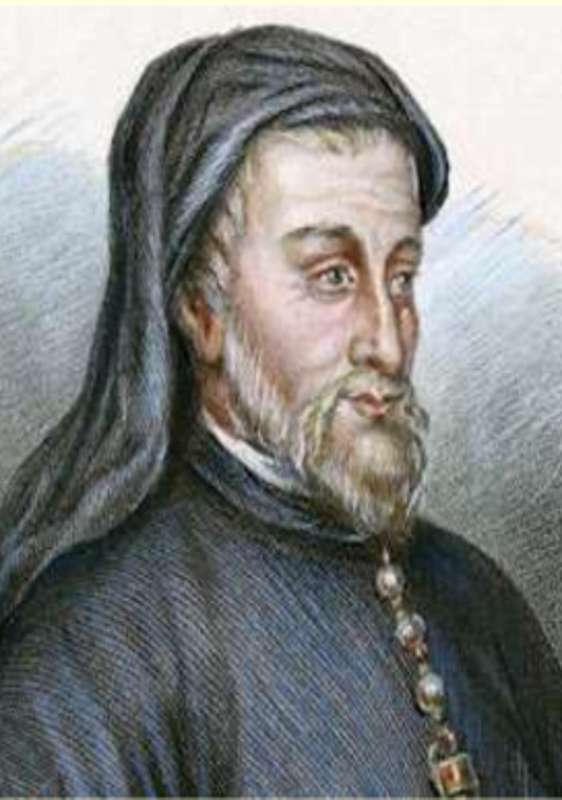Introduction
English literature has a rich and diverse history, spanning several centuries. It has been shaped by numerous talented writers who have contributed to its growth and development. While it is challenging to attribute the title of “father of English literature” to a single individual, one name that stands out prominently in this regard is Geoffrey Chaucer.
The Early Stages of English Literature
Before delving into Chaucer’s contributions, let’s briefly explore the early stages of English literature. English literature can be divided into different periods, each characterized by distinct linguistic and cultural influences.
Old English Period
The Old English period, also known as the Anglo-Saxon period, covers the era from the 5th century to the Norman Conquest in 1066. During this time, literature was primarily written in Old English, a Germanic language. Notable works include epic poems like Beowulf, which exemplify the heroic and mythical traditions of the time.
Middle English Period
The Middle English period followed the Norman Conquest and lasted from the 11th to the 15th century. This era witnessed a significant shift in language, with Middle English emerging as the dominant literary form. The works from this period showcase a blend of French and English influences, with notable works such as Sir Gawain and the Green Knight.
Geoffrey Chaucer and His Contributions

Geoffrey Chaucer, born around 1340, is widely regarded as one of the most influential figures in English literature. His works mark a transition from the Middle English period to the flourishing era of the Renaissance. Chaucer’s most renowned masterpiece is “The Canterbury Tales.”
Life and Background
Chaucer’s life was colorful and multifaceted. He held various positions in the royal court, which exposed him to diverse social circles and experiences. This exposure greatly influenced his writing, allowing him to capture the essence of medieval English society in his works.
Canterbury Tales
“The Canterbury Tales” is an exceptional literary work comprising a collection of stories told by a group of pilgrims traveling to Canterbury Cathedral. This narrative framework provides Chaucer with the opportunity to explore a wide range of characters from different walks of life. Through these tales, Chaucer skillfully presents a vivid and realistic depiction of medieval society, touching on themes of love, morality, and human nature.
“The Canterbury Tales” represents a pivotal moment in English literature, as it showcases Chaucer’s mastery of storytelling and his ability to capture the essence of his contemporaries. It remains an essential piece of literature that reflects the social, cultural, and linguistic developments of the time.
Who is father of Computer
Who is father of Chemistry
Who is father of Geography
The Renaissance and Its Impact
The Renaissance, a period of intellectual and artistic rebirth, had a profound impact on English literature. During this era, numerous writers emerged who made significant contributions to the literary landscape.
William Shakespeare
No discussion of the Renaissance and English literature would be complete without mentioning William Shakespeare. Often regarded as the greatest playwright in the English language, Shakespeare’s works continue to be celebrated and performed to this day. His plays, such as “Romeo and Juliet,” “Hamlet,” and “Macbeth,” have become iconic and have had a lasting influence on literature and theater.
Other Influential Writers
While Shakespeare is undoubtedly a prominent figure, there were many other notable writers during the Renaissance who contributed to the development of English literature. Some of these writers include Christopher Marlowe, Edmund Spenser, and Ben Jonson. Each brought their unique style and perspective, collectively enriching the literary landscape of the time.
Conclusion
English literature is a vast and diverse realm, shaped by the contributions of numerous writers throughout history. While it is difficult to designate a single individual as the sole “father of English literature,” Geoffrey Chaucer stands as a towering figure who played a pivotal role in the transition from the Middle English period to the Renaissance. His masterpiece, “The Canterbury Tales,” remains a testament to his literary prowess and enduring influence.
Frequently Asked Questions (FAQs)
Q: Is Geoffrey Chaucer considered the only father of English literature?
A: While Geoffrey Chaucer is highly regarded for his contributions to English literature, it would be incorrect to consider him the only father of English literature. There were other influential writers who made significant contributions to the development of the English literary tradition.
Q: Who were some notable writers during the Renaissance?
A: Alongside William Shakespeare, other notable writers during the Renaissance included Christopher Marlowe, Edmund Spenser, and Ben Jonson. Each of these writers brought their unique style and perspective, contributing to the rich tapestry of English literature.
Q: How did English literature evolve over time?
A: English literature evolved over time through various periods, such as the Old English period, Middle English period, and the Renaissance. Each period had its distinct characteristics and influences, leading to the development of diverse literary styles and themes.
Q: What is the significance of the Canterbury Tales?
A: “The Canterbury Tales” is significant as it represents a pivotal moment in English literature. It showcases Geoffrey Chaucer’s skill as a storyteller and provides a vivid depiction of medieval society. The tales explore various themes and offer insights into the social and cultural dynamics of the time.
Q: Where can I learn more about the history of English literature?
A: To delve deeper into the history of English literature, you can explore various academic resources, books, and online platforms dedicated to the subject. Additionally, educational institutions and libraries often provide valuable resources for studying English literature.